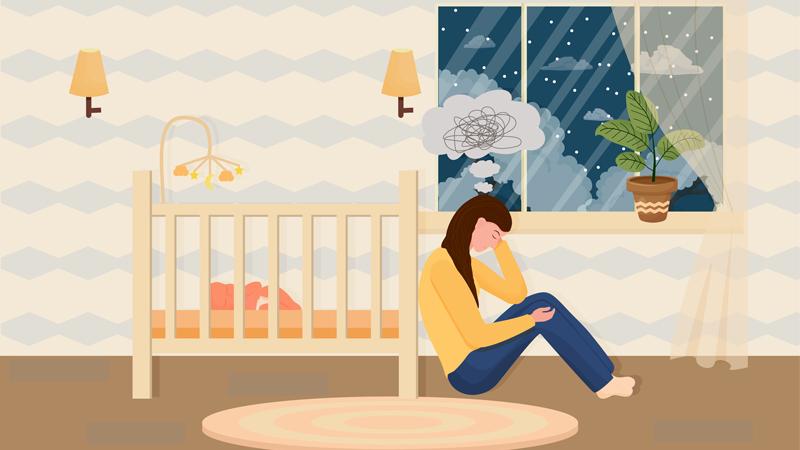A new study led by Westminster alumna Naomi Law and co-authored by Dr Anna Cheshire, Research Fellow in Psychology, has found that having negative thoughts in early motherhood is significantly more common than previous research suggests.

The researchers also found that the more frequently new mothers experience negative thoughts about motherhood, the more likely they are to feel guilt and shame.
The study, which surveyed 395 new mothers in the UK and Ireland, all with babies under one year old, found that nearly two thirds (63%) thought they were a ‘bad mother’ some of the time, while 39% sometimes thought there was something wrong with them, 38% said they had felt ‘trapped’ and 28% had worried things would never get better.
Researchers found that negative thoughts are much more common in new mothers than previous research suggested, even when the mothers are not experiencing postnatal depression, and the more motherhood-related negative thoughts they experienced, the higher their rating of psychological distress.
Many of the mothers who took part in the study struggled with the idea of sharing negative thoughts with others. This suggests that having negative thoughts about early motherhood may be seen as socially unacceptable.
The study, published in the Journal of Child and Family Studies, updates the findings from previous research published in 2006 by Co-Author Dr Pauline Hall, a Perinatal Clinical Psychologist from The Queen Elizabeth Hospital, Adelaide. The initial study established that non-depressed new mothers experienced negative thoughts about motherhood. The study by Naomi Law, Dr Cheshire and Dr Hall updates this research by providing a more recent assessment of the frequency of these negative thoughts and by investigating the emotions associated with them.
Future exploratory research is needed, but the researchers suggest that a process of ‘normalising’ negative thoughts for new mothers may have positive benefits for reducing guilt, shame and distress. For example, they suggest that if antenatal classes prepared pregnant women for the kinds of thoughts it is common to experience, it might help new mothers feel more comfortable with such thoughts after birth.
The process of normalisation also has potential implications for the understanding, and even prevention, of postnatal depression, as negative thoughts, shame and some forms of guilt have all been linked to depression. Whilst it is important that a process of normalisation does not result in trivialising or overlooking the symptoms of depression, the study suggests that greater openness might reduce the connections between negative thoughts, guilt and shame.
Talking about the research, Westminster alumna Naomi Law who carried out the research as part of her Masters degree at Westminster, said: “We know women’s expectations of being a mother can be shaped by ideals of motherhood as intuitive, joyful and fulfilling. Whilst these ideals hold true for some women, they don’t for all, and new mothers can feel they have failed if these expectations aren’t met. Our research helps us understand more about what early motherhood is like in reality, rather than as an ideal. It suggests that, even amongst mothers who aren’t experiencing postnatal depression, negative thoughts are common, and these thoughts are related to guilt and shame. We hope that recognising how common it is to have negative thoughts about early motherhood may help new parents feel less alone when they experience difficult thoughts and emotions.”
Dr Pauline Hall added: “The fact that new mothers are reluctant to share negative thoughts can lead to suffering distressing cognitions in silence. Women can become caught in a negative vicious cycle of experiencing an intrusive thought about motherhood, which they then interpret negatively, for example by thinking ‘there must be something wrong with me’ for having that thought, or ‘having bad thoughts about my baby means I’m evil’.
“This in turn leads to increased distress, which reinforces the frequency of negative thoughts. Health professionals can aim to break this vicious cycle by providing appropriate reassurance that negative thoughts are common and do not mean you’re a ‘bad’ mother or there’s something wrong with you. We can seek to reassure women that ‘a thought is just a thought’.”
Read the full study in the Journal of Child and Family Studies.


